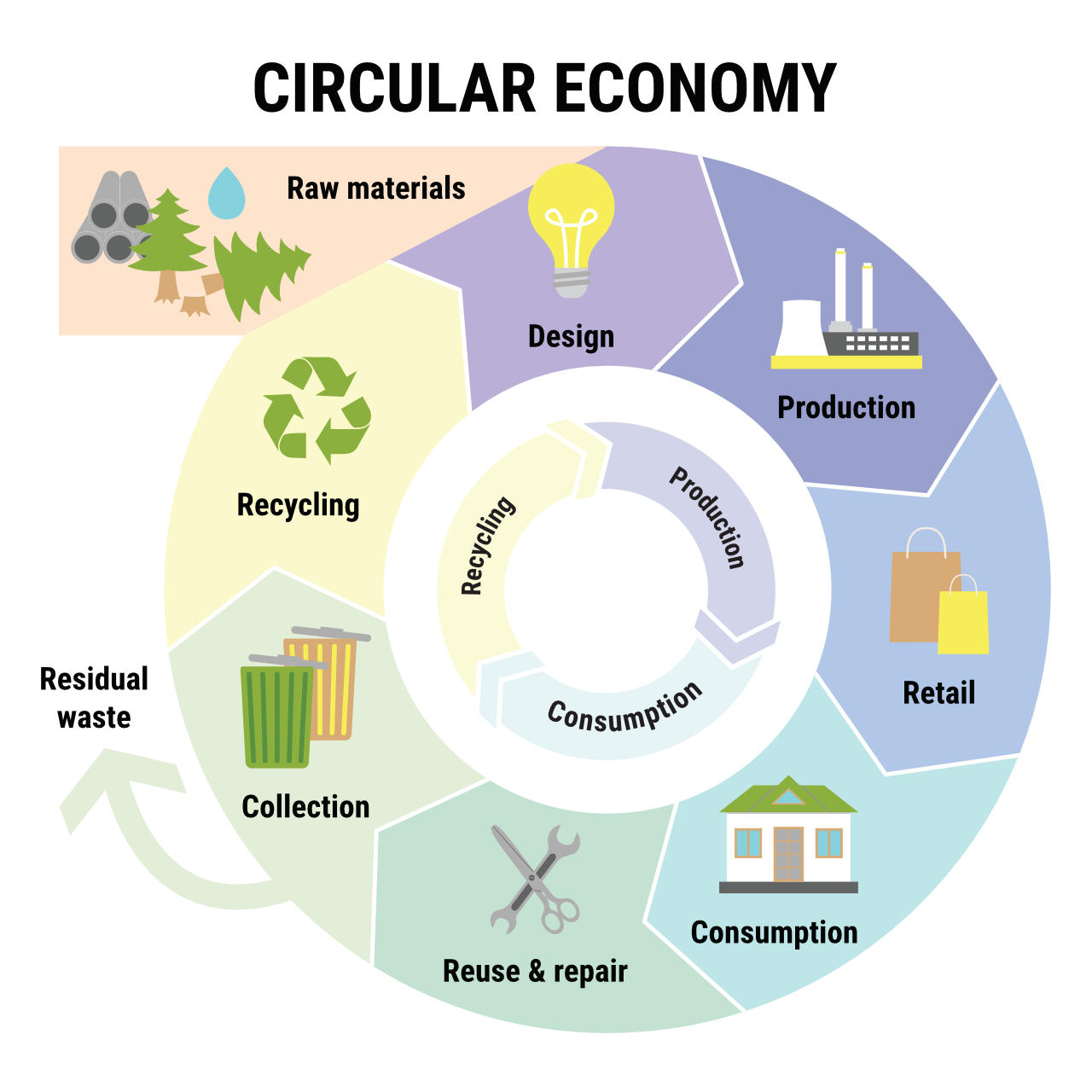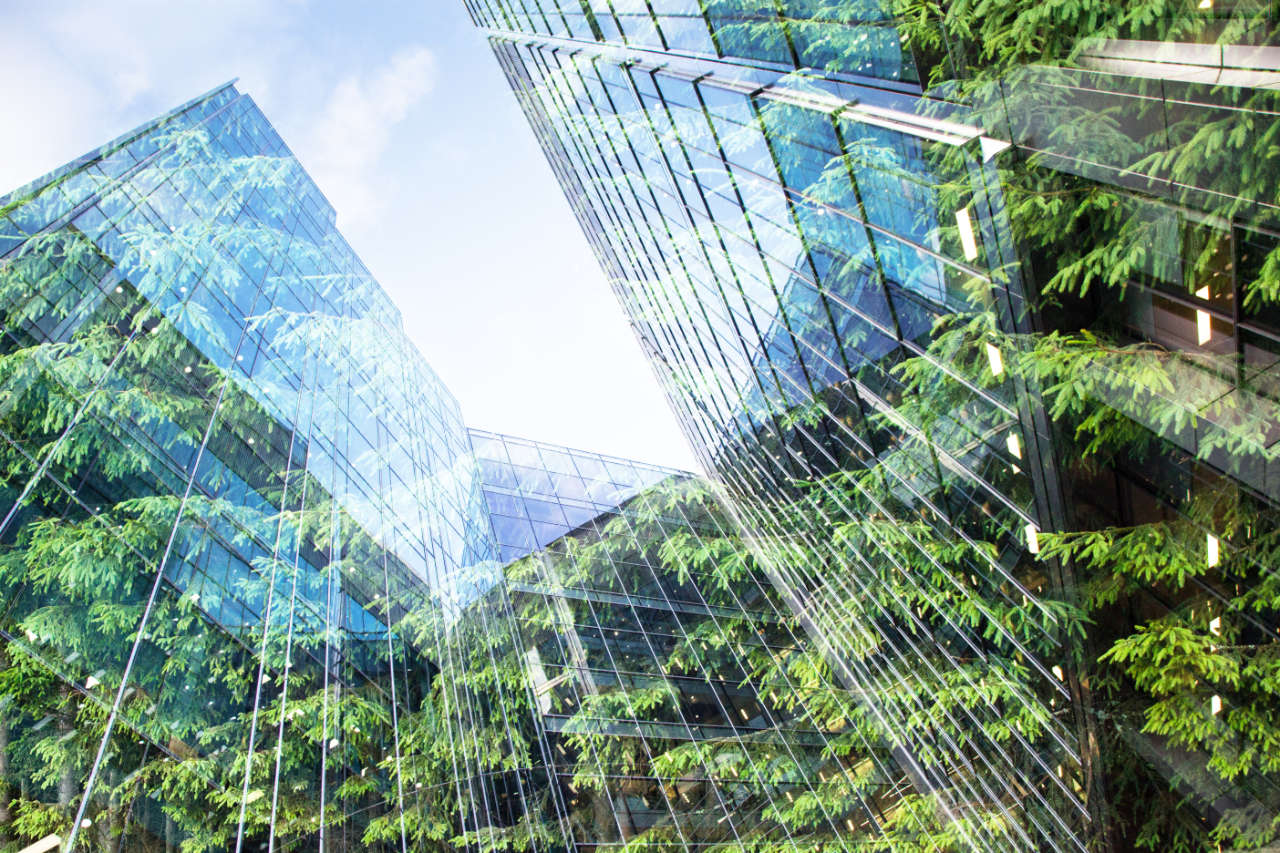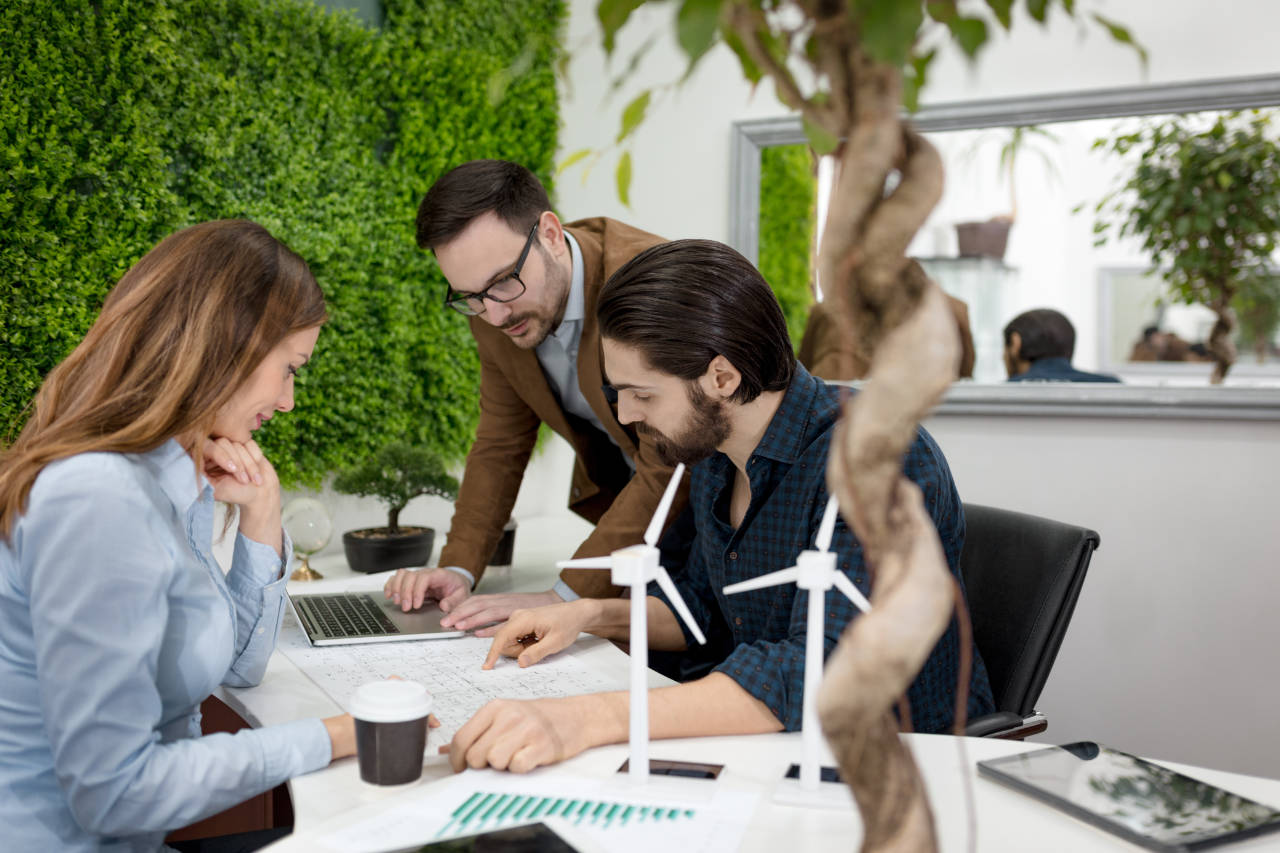Climate change is one of the biggest challenges of our time. It is critical in tackling climate action, helping Ireland transition to a low-carbon economy and achieve national and global climate targets.
What is a circular economy?
It is an alternative to the current linear economy based on a ‘take, make, consume and dispose’ mindset. It instead seeks to eliminate waste and reduce pollution levels as low as feasibly possible by keeping raw materials and products in use for as long as possible. This lowers the demand for resources, reduces environmental pressure, and helps create a more sustainable society.
There are three key principles associated with the transition to a circular economy action plan, according to the Ellen MacArthur Foundation:
- Eliminate waste and pollution.
- Keep raw materials and products in use.
- Regenerate natural systems.

In a circular economy, organisations increase product durability, recycle materials and products, use sustainable energy and reuse and repurpose resources. It applies not only to the production and consumption of goods and services but also to how they are used by customers, such as repairing something if it breaks rather than throwing it away, repurposing products into new uses, and buying secondhand products.
The concept of a circular economy isn’t new – many developing countries already undertake circular actions in certain industries. However, more needs to be done to adopt this economic model. The 2021 Circularity Gap Report states that the global circular economy needs to double by 2030 to make a noticeable impact.
Our services can help support your organisation’s efforts to reduce its environmental impact and better manage waste, such as our ISO 14001 environmental management certification and our resource efficiency and waste prevention services.
The benefits of a circular economy
It can deliver several benefits, including:
- Reducing greenhouse gas emissions.
- Stimulating creativity and innovation.
- Minimising the demand for raw materials.
- Saving money for consumers and companies.
- Creating more jobs.
- Boosting economic growth.
- Avoiding resource price changes.

Where do SMEs fit in Ireland’s circular economy?
According to the Central Statistics Office, there are more than 248,000 SMEs in Ireland, contributing over a third of the gross value of economic activity.
While SMEs may not have access to the same resources as larger businesses or global corporations, their agile nature allows them to more easily make the necessary changes to their work culture and processes to help implement Ireland’s circular economy.
Here are some steps smaller businesses can take to migrate towards it.
Eco-friendly design
Smaller business models can incorporate sustainable economic growth, eco-friendly design into their products and services. This can apply to a product’s entire lifecycle, from product design to manufacturing, distribution and use.
The design of products and services should be carefully considered to make supply chains as sustainably as possible, such as creating modular products that support easy end-user repair or component replacement.
Materials should be at the heart of eco-friendly design. New products should use recycled or recyclable materials and locally-sourced resources and materials. Factors such as the carbon footprint of materials shipping should be integrated at the design stage, as well as ensuring that products are designed to be as durable as reasonably possible.
Businesses should also consider ways to make their business models operations more environmentally friendly. This could include minor changes such as using recycled office supplies and packaging, turning off equipment and lights when not in use, and encouraging employees to carpool or take public transport to reduce CO2 emissions. Consider signing up for a green energy tariff from a renewable energy provider or investing in building renewable energy sources such as solar panels or wind turbines.
For SMEs looking to prioritise sustainability, implementing an ISO 14001 environmental management system can help them reap the benefits of making environmentally-friendly changes.
Waste management
The current linear economy is a take-make-waste system.
Raw materials are taken from the natural world, products are made from them, which are eventually thrown away as waste – much of which ends up in landfills or is incinerated. To help preserve natural resources, the first principle of the circular economy strategy is about understanding that waste relates to how things are designed and produced and finding new ways to negate this impact.
Commercial waste management covers how and where waste is created, how it is disposed of, and ways to reduce its production. Smaller business models have many sources of waste – in manufacturing processes, in the workplace, and once the consumer has their product, such as packaging.
Waste can be reused throughout the manufacturing and shipping process. Waste materials, such as metal shavings, wood, and plastics, can be collected and incorporated into other products or sold to third-party waste reuse organisations to be transformed into goods from car tyres and clothing to home accessories and packaging.
Consider repairing and reusing old equipment, rather than discarding outdated IT equipment to landfill, for example. Old computers can often be upgraded or reused for low-intensity computing tasks. Alternatively, donate old equipment to other organisations for reuse.
Use recycled or recyclable materials in your packaging that can also be repurposed and provide easy ways for products to be reused or recycled as their near end of life.

Sustainability schemes
Consider introducing schemes to foster longer use, such as repair services, trade-in services and waste disposal schemes.
Many technology businesses, for example, offer trade-in schemes for older technology products, such as credit to a new product such as a smartphone. This allows old technology products to be captured by the business and either refurbished and resold to customers with lower budgets or to be recycled and materials reclaimed and reused to create new products. It’s also good for customers, incentivising them to buy a new product while not disposing of the old product in landfills.
If an SME can’t provide these repair services themselves, it could be worth partnering with businesses that can, or providing helpful information to customers on how to repair products themselves, such as video tutorials and how to care for their products properly.
Renewable energy sources
SMEs consume energy at every step of their operations, but there are ways to minimise the impact that usage has on the environment. Reducing how much energy a business consumes can only do so much, so looking towards more sustainable economic growth energy sources and providers can be a next step.
However, before making this step, SMEs should consider the easier changes they can implement, such as more green deal modes of transport (using electric vehicles for shipping and transportation) and using renewable energy to power their offices and warehouses (for example, solar panels).
Implementing changes via an ISO 50001 energy management system can make the transition to a circular economy easier.




